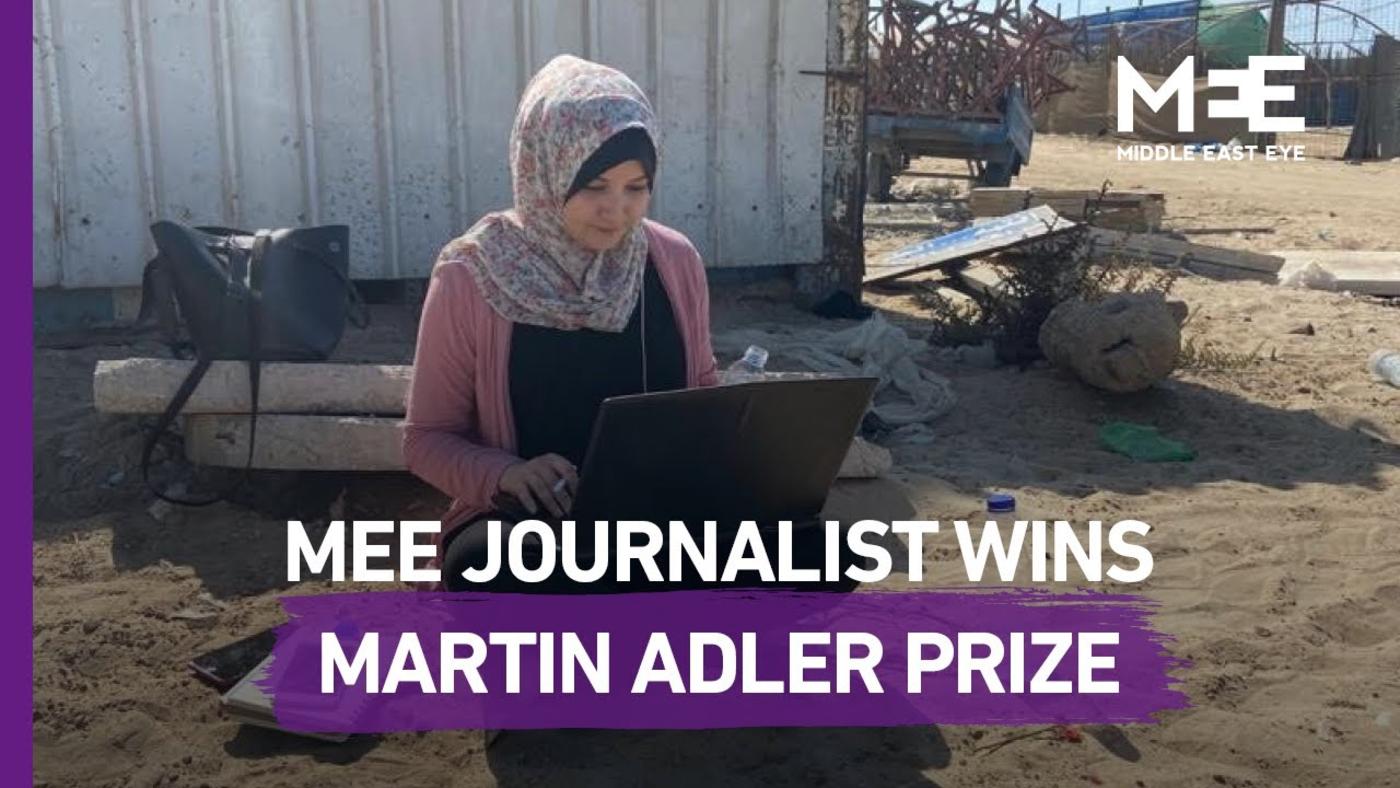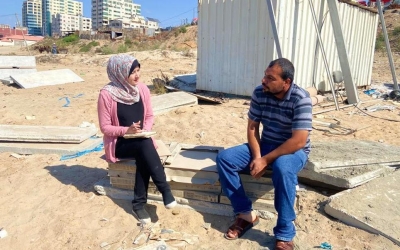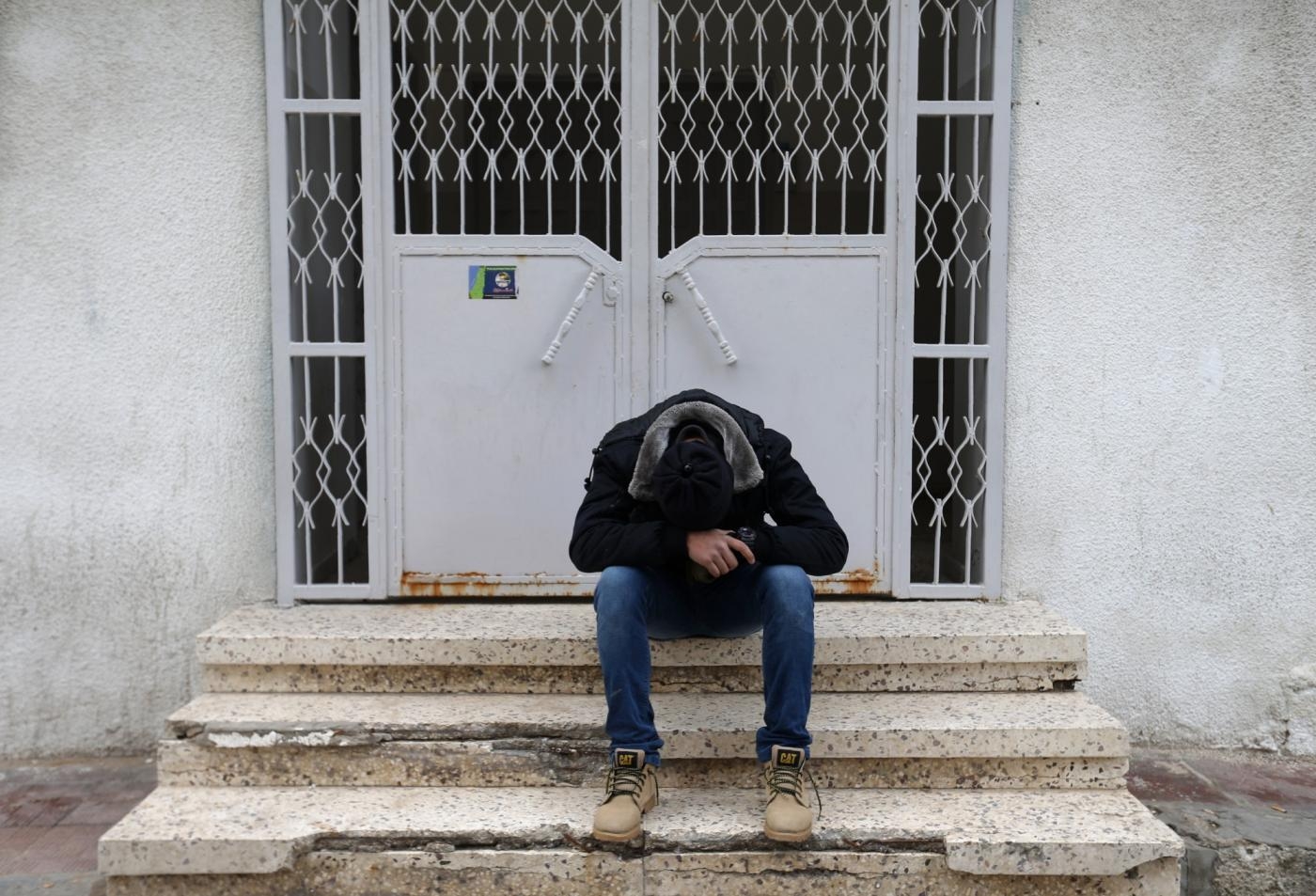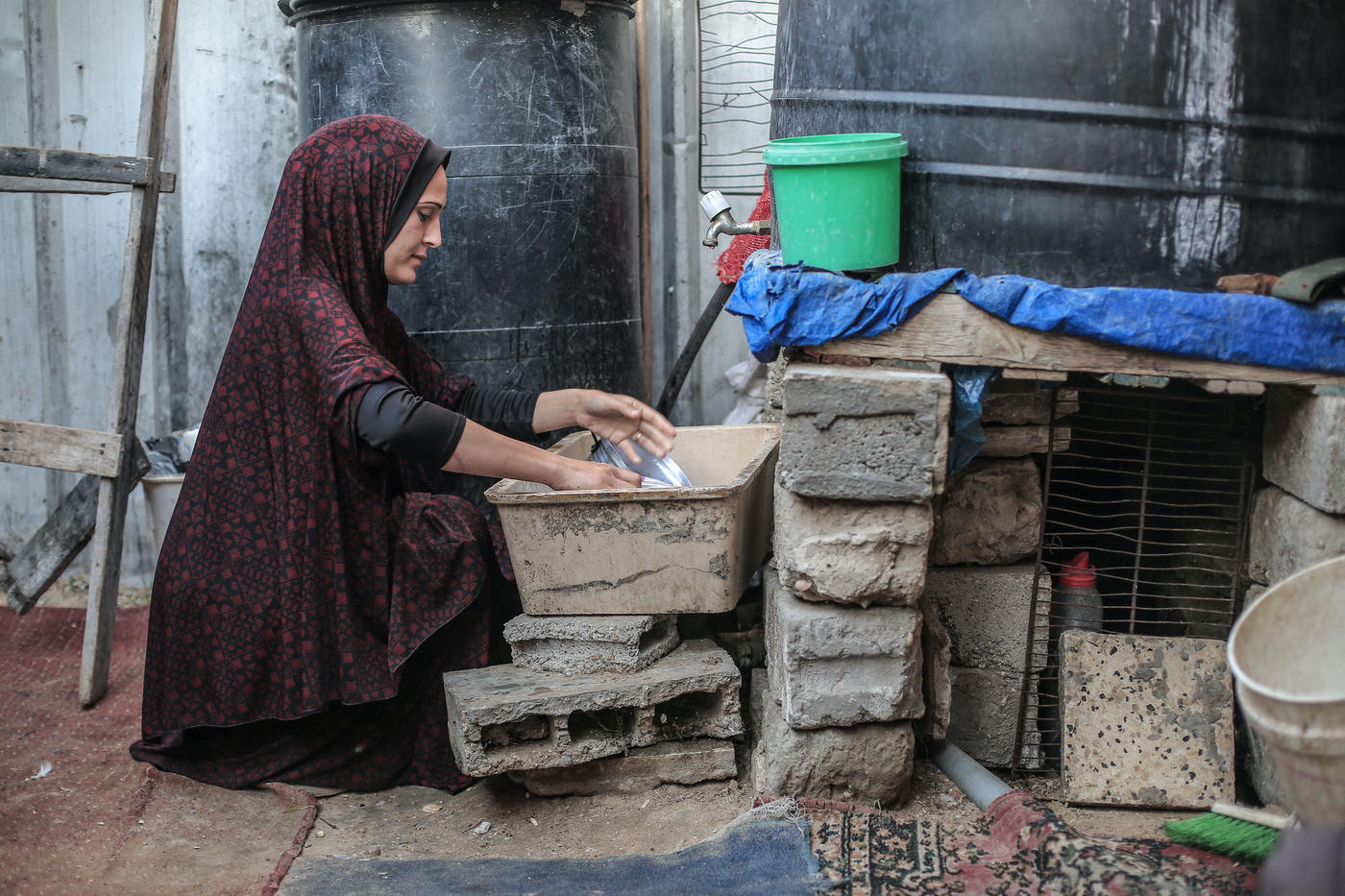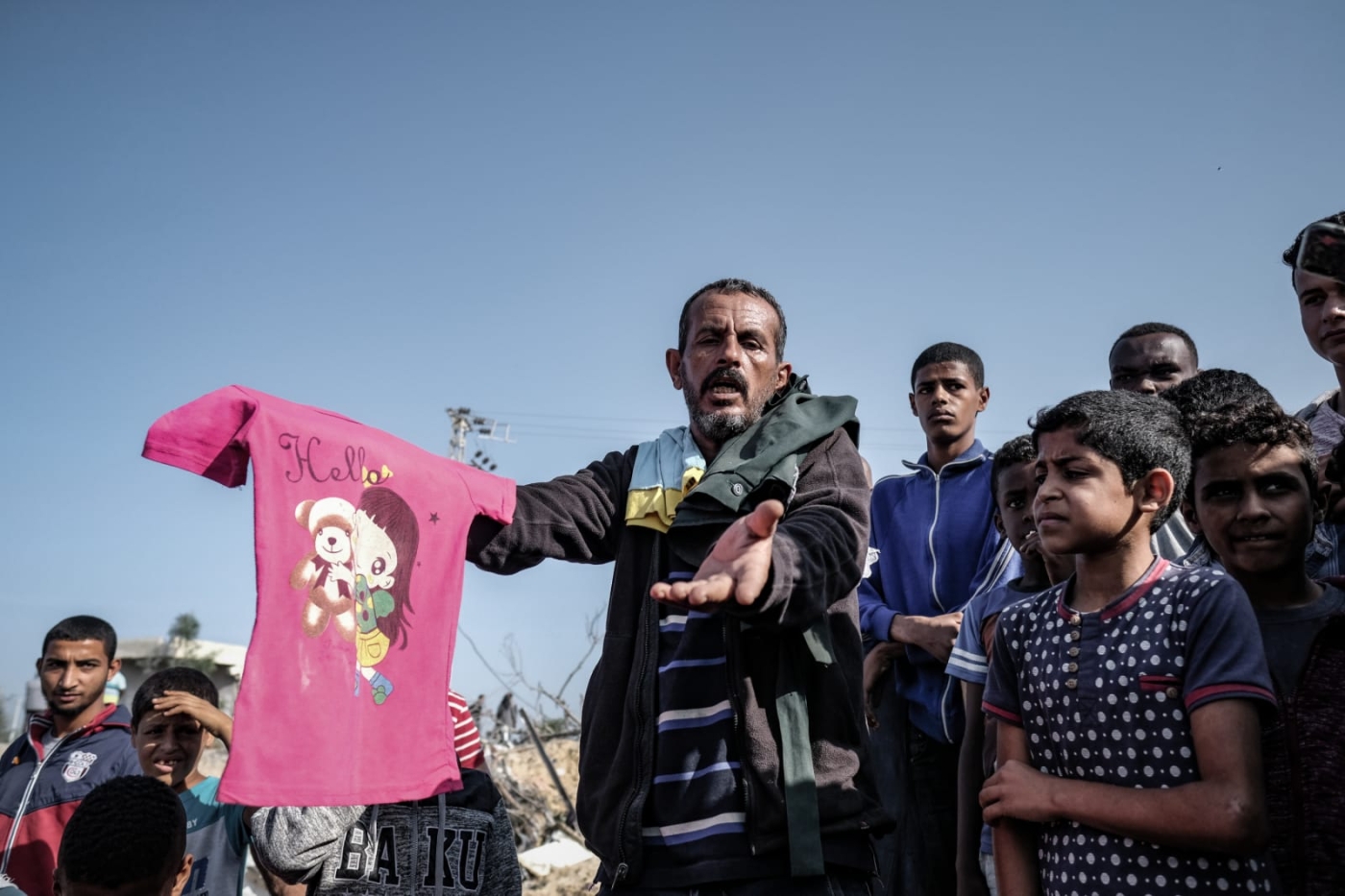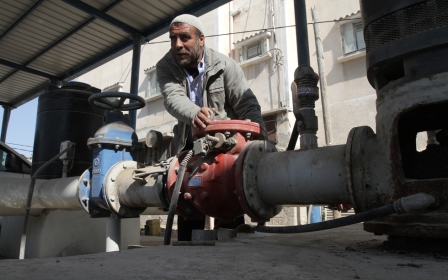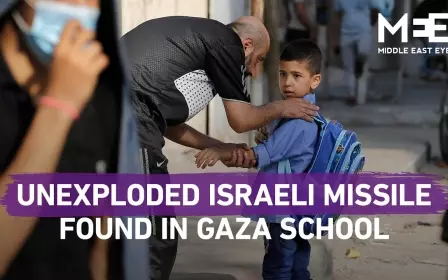MEE journalist Maha Hussaini wins Martin Adler Prize
Middle East Eye freelance correspondent Maha Hussaini has won the Martin Adler Prize, awarded by the prestigious Rory Peck Trust, for her reporting for Middle East Eye from Gaza.
BBC journalist Clive Myrie, a trustee of the trust, who announced the award on Tuesday, described Hussaini's work as "outstanding" and praised the "extraordinary courage and dedication she has displayed to bring to life vital news and information".
He said that Hussaini "sums up exactly what this prestigious award stands for. This journalist also exemplifies the essential values and ethos of the trust... someone who has worked with great courage in covering stories which may otherwise have never been reported."
Accepting the prize via video, Hussaini said: “I am extremely overwhelmed and humbled today to receive the news that I have won the Martin Adler Prize 2020 from the Rory Peck Trust.
"Winning this prestigious prize means especially a lot to me because, as someone living under occupation since birth and blockade almost half her life, journalism becomes more than just a profession. It is a way to challenge such harsh conditions by being a voice for the voiceless, of those living under systemic oppression, blockade and sometimes even blackout."
The award is given by the trust, set up to support freelance journalists and their families worldwide, after Rory Peck, a cameraman, was shot and killed in Moscow in October 1993.
The Martin Adler Prize, awarded by the trust and part of its annual awards, honours the late Swedish journalist who was killed in Mogadishu in 2006. It is awarded to “a local freelancer or field producer who has made a significant contribution to newsgathering”.
The other finalists were Fadi al-Halibi, a freelancer based in the Syrian opposition-held enclave of Idlib, nominated by Channel 4 News in the UK; and Rohini Mohan, an Indian journalist nominated by Vice News.
MEE wins second award
Husaini's success marks the second award won by a female Palestinian journalist working for Middle East Eye this year. In June, Shatha Hammad, a freelance journalist working from the occupied West Bank with Middle East Eye, won the prestigious One World Media New Voice Award.
Lubna Masarwa, Middle East Eye’s Palestine and Israel bureau chief, based in Jerusalem, said: “Palestinian women have to cross many boundaries. Maha has been able to go beyond the imposed siege on Gaza and voice the daily reality, through journalism, of people's lives there. She does this in a unique and exceptional way by reporting on personal stories.
"This award is particularly meaningful for all journalists who are besieged in Gaza and proves, beyond doubt, that their voices can be heard beyond the blockade."
Hussaini began work as a freelance journalist in July 2014 during the Israeli offensive on Gaza, producing, preparing and presenting reports on the conflict that resulted in the deaths of more than 2,200 Palestinians and around 60 Israelis. She also works as a human rights advocate for Euro-Med Monitor and the London-based ImpACT think tank.
She has been writing for Middle East Eye since 2018. The pieces submitted for the award were:
Suicides in Gaza increase due to conditions
Twenty-three years after he was released from an Israeli prison, Jamal Wadi still struggled with the aftermath of his experience. After three decades of suffering from severe psychological trauma and mental health issues, the 54-year-old Palestinian took his own life on 21 June.
Whether influenced by economic difficulties, the traumatic impact of Israeli occupation policies or other factors, rights groups say the surge in suicide attempts is very concerning.
Read full story: Gaza, under blockade, sees surge in suicides
'Our worst nightmare is when it starts raining'
In 2012, United Nations issued a report, warning that by 2020 the Gaza Strip could be uninhabitable due to severe problems with its water, power, healthcare and education systems.
MEE spoke with a homeowner, a doctor and a teacher about how their lives have changed in recent years - and what the future may hold.
Read the full story: What Palestinian life is like under Israeli blockade
‘All that’s left are their school uniforms’
A large hole now stands where, only one day earlier, two homes were torn to the ground by Israeli air strikes. Looking over the debris, dozens of relatives and neighbours gathered to remember the eight members of the al-Sawarka family, who were killed in the attack.
The Sawarka family members were in bed when the attack took place after midnight on Wednesday, turning their homes into rubble.
Read the full story: Israeli air strike kills Palestinian family
Middle East Eye delivers independent and unrivalled coverage and analysis of the Middle East, North Africa and beyond. To learn more about republishing this content and the associated fees, please fill out this form. More about MEE can be found here.


